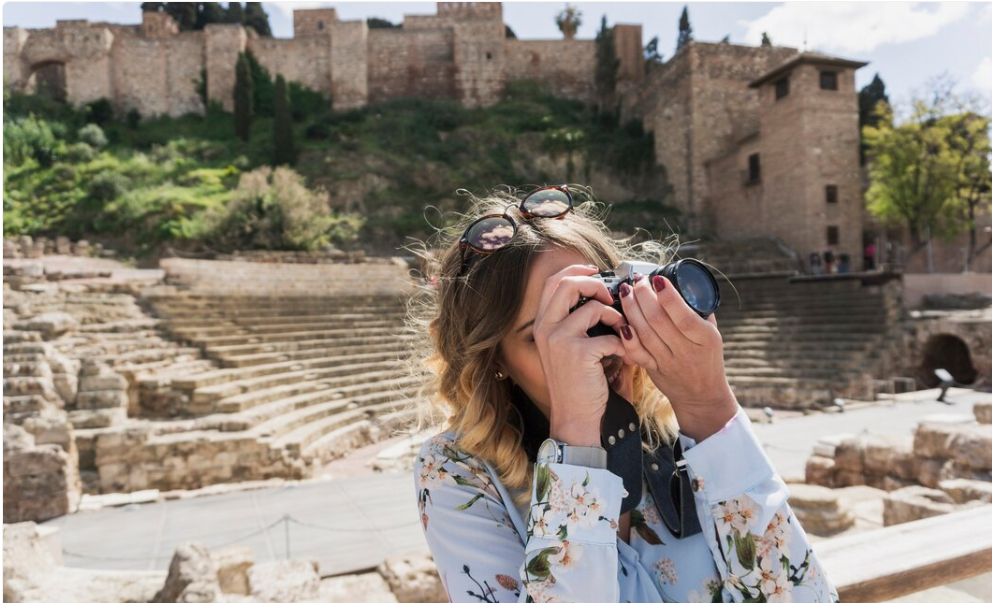
by Dulce Navarro | Apr 17, 2025 | Countries, Culture, Europe, Lifestyle, Traditions, Travel
Preserving Traditions in a Digital Age: A Look at Global Efforts
In a world where rapid technological advancement defines the way we live, work, and connect, cultural traditions risk fading into obscurity. Yet around the globe, a diverse set of communities, organizations, and governments are working tirelessly to ensure that ancient customs and cultural heritage continue to thrive. This post explores the dynamic intersection between tradition and technology, and highlights inspiring efforts to preserve cultural identity in our increasingly digital world.
The Digital Challenge to Cultural Traditions
Digital transformation has reshaped every aspect of society—from how we communicate to how we consume information. While this shift has brought numerous benefits, it also poses a threat to oral histories, artisanal crafts, and cultural rituals that rely on in-person transmission and hands-on experience. The question many communities face is: how do we adapt without losing our roots?
Technology as a Preservation Tool
Interestingly, technology itself is playing a vital role in cultural preservation. Digital archiving, virtual reality experiences, and interactive online platforms are being used to document and share traditions worldwide. For example:
- UNESCO’s Memory of the World program digitally archives historical documents and artifacts to safeguard cultural heritage.
- Google Arts & Culture offers immersive exhibits of museums, traditional dances, and ancient texts from across the globe.
- VR and AR technology allows users to experience cultural festivals or explore historical landmarks without leaving home.
Grassroots Efforts to Keep Traditions Alive
At a local level, communities are also stepping up. Language preservation projects have turned to mobile apps and YouTube channels to teach endangered languages. Traditional craftsmen and women are showcasing their work on Instagram and Etsy, gaining recognition and support from global audiences.
Education and Cultural Literacy in the Digital Age
Integrating traditional knowledge into modern education systems has become another important strategy. Schools in various countries are incorporating indigenous storytelling, local history, and folk art into their curricula. Online platforms like Coursera and Khan Academy are also offering courses on world cultures and ancient philosophies, making them accessible to younger generations worldwide.
The Role of Governments and NGOs
Many governments have introduced initiatives to protect intangible cultural heritage. Japan, for instance, designates certain artisans as “Living National Treasures” to ensure the transmission of traditional skills. NGOs like Cultural Survival and Endangered Languages Project support indigenous communities in documenting and maintaining their cultural practices.
Balancing Innovation with Authenticity
One of the key challenges in preserving traditions in a digital era is maintaining authenticity. While online tools are powerful, they can also dilute or misrepresent cultural practices. It’s crucial that digitization efforts involve local voices and that technology complements rather than replaces real-world engagement.
Looking Forward
As we navigate the future, embracing both innovation and tradition will be essential. Cultural heritage gives us identity, belonging, and continuity. By thoughtfully leveraging technology, we can ensure these priceless elements of human history endure for generations to come.
Conclusion
Preserving traditions in the digital age is not about resisting change—it’s about evolving mindfully. Around the world, people are finding creative ways to honor their heritage while engaging with modern tools. Their efforts remind us that culture is not static; it’s a living, breathing part of who we are.
Stay Connected for More Travel and Lifestyle Inspiration. For more insights into travel, culture, and lifestyle tips, follow me on Instagram @salvadorordorica. If you’re seeking professional translation and localization services to enhance your global ventures, visit The Spanish Group — your trusted partner in bridging cultures worldwide.

by Dulce Navarro | Apr 17, 2025 | Culture, Europe, Languages, Lifestyle, Residency, Travel, Work
How to Overcome Language Barriers as a Digital Nomad
In today’s globally connected world, digital nomads are redefining what it means to live and work abroad. However, one of the most common challenges they face is navigating language barriers. Communication is central to both professional success and cultural integration, and a lack of fluency can lead to missed opportunities and unnecessary frustrations. For company directors who frequently travel or manage international teams, understanding how to effectively overcome these barriers is key to thriving in a foreign environment.
Embrace the Basics Before You Travel
Before arriving in a new country, it’s beneficial to learn the basic phrases of the local language. Greetings, directions, numbers, and polite expressions go a long way in establishing rapport. Numerous language apps like Duolingo, Babbel, or Rosetta Stone offer quick-start lessons tailored for travelers. These tools help build confidence and reduce dependence on English in everyday scenarios.
Use Translation Tools Wisely
While not a substitute for language learning, digital translation tools can be lifesavers in many situations. Apps such as Google Translate and DeepL allow users to translate text, voice, or even images in real time. Carrying a phrasebook app or a mobile dictionary can also help in offline situations. For business settings, consider using professional translation services for documents and legal materials to ensure accuracy and professionalism.
Leverage Local Language Classes
Immersing yourself in the local language through formal classes is one of the most effective ways to gain fluency. Many cities popular among digital nomads—like Barcelona, Paris, or Bali—offer short-term or intensive language courses tailored for foreigners. This not only enhances your language skills but also provides social opportunities and cultural insight.
Build Relationships with Locals
Building genuine relationships with locals is an invaluable step in overcoming language barriers. Engaging in conversations, asking questions, and expressing interest in their culture encourages reciprocal communication. Even if your grammar isn’t perfect, the effort is often appreciated and can lead to faster learning and deeper community integration.
Work with Bilingual Professionals
When possible, collaborate with bilingual partners or hire interpreters for critical meetings. In business environments, this ensures that both parties clearly understand each other, reducing the risk of miscommunication. It’s especially important in legal, medical, or financial contexts, where accuracy is paramount.
Use Visual Communication
When words fail, visuals succeed. Gestures, diagrams, maps, and pictograms are excellent tools for communicating basic concepts. Even in professional settings, using slides, infographics, or diagrams during presentations can help bridge language gaps and clarify your message.
Adapt Your Communication Style
Speaking slowly, avoiding idioms, and using simple vocabulary can drastically improve understanding. Digital nomads should be mindful of cultural communication differences as well—what may be considered polite or normal in one culture may be misinterpreted in another. It’s often helpful to confirm understanding by summarizing key points and asking open-ended questions.
Stay Patient and Open-Minded
Learning a language and integrating into a new culture is a process that takes time. Frustrations are normal, but staying patient and maintaining a sense of humor can ease the transition. Celebrate small wins, such as ordering food successfully or having a casual chat with a neighbor, as milestones in your journey.
Professional Translation and Localization Services
For digital nomads who run international businesses or manage global teams, partnering with a professional translation agency can streamline operations. Services like The Spanish Group offer certified translations, website localization, and multilingual marketing materials that help businesses communicate effectively across borders.
Conclusion
Overcoming language barriers is not just about fluency—it’s about connection, adaptability, and respect for local cultures. By embracing tools, strategies, and local experiences, digital nomads can transform language challenges into meaningful opportunities for growth and collaboration.
Stay Connected for More Travel and Lifestyle Inspiration. For more insights into travel, culture, and lifestyle tips, follow me on Instagram @salvadorordorica. If you’re seeking professional translation and localization services to enhance your global ventures, visit The Spanish Group — your trusted partner in bridging cultures worldwide.

by Dulce Navarro | Apr 16, 2025 | Countries, Europe, Lifestyle, Travel
The Best Places to Visit in Paris Beyond the Eiffel Tower
While the Eiffel Tower is undoubtedly one of the most iconic landmarks in Paris, the City of Light offers a wealth of experiences that extend far beyond this world-famous monument. For business travelers, company directors, and luxury explorers seeking authenticity, culture, and charm, Paris holds countless hidden gems and sophisticated locales that truly embody its magic.
Le Marais: Historic Elegance Meets Modern Chic
Le Marais is one of Paris’ most enchanting neighborhoods, combining narrow cobblestone streets, historic architecture, and a vibrant cultural scene. Originally the aristocratic district, today Le Marais boasts high-end boutiques, art galleries, and chic cafés. Highlights include the Place des Vosges, the oldest planned square in Paris, and the Musée Carnavalet, dedicated to the history of the city.
Canal Saint-Martin: A Tranquil Urban Escape
For a more relaxed experience, the Canal Saint-Martin area is a must. Lined with leafy trees, iron footbridges, and bohemian cafés, this neighborhood is perfect for a scenic walk or casual lunch by the water. It’s also a hotspot for indie designers and weekend markets, making it a favorite for creative professionals and trendsetters.
Montmartre: The Artist’s Village
Perched on a hill in the 18th arrondissement, Montmartre has long been a haven for artists and free spirits. Beyond the famed Sacré-Cœur Basilica, Montmartre is full of charming side streets, artist studios, and cafés that once welcomed the likes of Picasso and Van Gogh. A stroll through Place du Tertre offers a nostalgic glimpse into the neighborhood’s artistic roots.
Palais-Royal: A Hidden Architectural Treasure
Just a few steps from the Louvre, the Palais-Royal is often missed by tourists. Its elegant arcades, manicured gardens, and contemporary art installations, such as the Colonnes de Buren, offer a refined experience. The area is also home to some of the city’s most exclusive designer boutiques and fine dining establishments.
Musée Jacquemart-André: A Mansion Full of Masterpieces
This lesser-known museum is set in a stunning 19th-century mansion and features an exceptional private collection of Renaissance and classical art. For those who appreciate both architecture and fine art, the Musée Jacquemart-André provides a more intimate and luxurious cultural experience compared to the larger, more crowded institutions.
Rue Cler: A Gourmet’s Paradise
Located near the Eiffel Tower but often overlooked, Rue Cler is a bustling market street beloved by locals. Here, you’ll find artisanal cheese shops, wine merchants, bakeries, and fresh produce stalls — perfect for assembling a luxurious Parisian picnic or simply indulging in the culinary art of everyday life in France.
Parc des Buttes-Chaumont: Nature with a View
This picturesque park in northeastern Paris offers a break from the formal gardens of central Paris. With its steep cliffs, suspension bridge, waterfall, and panoramic views, Parc des Buttes-Chaumont provides an unexpected yet peaceful retreat ideal for reflection or a leisurely afternoon walk.
La Grande Épicerie de Paris: A Luxury Food Experience
For business travelers and food connoisseurs, La Grande Épicerie is the ultimate gourmet grocery destination. Located in the chic 7th arrondissement, it features premium international and French products, delicatessen counters, and an exquisite wine cellar — perfect for curated gifting or personal indulgence.
Maison de la Photographie: Contemporary Visual Culture
Art lovers looking for a contemporary twist should not miss the Maison de la Photographie. This cultural space regularly hosts exhibitions showcasing world-renowned and emerging photographers, offering fresh perspectives on visual storytelling and modern Parisian culture.
Conclusion
Paris is far more than just the Eiffel Tower. For those who seek to explore beyond the usual landmarks, the city offers a rich tapestry of art, culture, cuisine, and community. Whether you’re in Paris for business or leisure, these locations offer an elevated and authentic experience that captures the true essence of this remarkable city.
Stay Connected for More Travel and Lifestyle Inspiration. For more insights into travel, culture, and lifestyle tips, follow me on Instagram @salvadorordorica. If you’re seeking professional translation and localization services to enhance your global ventures, visit The Spanish Group — your trusted partner in bridging cultures worldwide.

by Dulce Navarro | Apr 16, 2025 | Countries, Culture, Europe, Lifestyle, Residency, Travel, Work
Everything You Need to Know About Digital Nomad Visas in France
France has long captivated travelers with its art, culture, and lifestyle. But now, the country is becoming increasingly attractive to digital nomads and remote workers seeking a temporary yet immersive European base. With changing work environments and the rise of remote professions, digital nomad visas are gaining popularity — and France is no exception. If you’re a professional looking to live and work in France legally while maintaining employment elsewhere, this guide is for you.
What is a Digital Nomad Visa?
A digital nomad visa allows remote workers, freelancers, and self-employed professionals to live in a foreign country while working for clients or companies based outside that country. Unlike a tourist visa, which usually limits your stay to 90 days, a digital nomad visa often provides longer and renewable residency options, allowing you to enjoy life abroad without legal complications.
Is There a Digital Nomad Visa for France?
While France does not have a dedicated “digital nomad visa” by name, it offers several visa options that digital nomads can take advantage of, including:
- Long-Stay Visa (Visa de Long Séjour): Ideal for freelancers or self-employed individuals. This visa allows you to stay in France for more than 90 days and can be renewed.
- Profession Libérale Visa: Designed for those who want to work as a freelancer or operate a business in France.
- Talent Passport: Suitable for highly skilled professionals, especially in tech, science, and business sectors.
Eligibility Criteria
The exact requirements vary depending on the type of visa you apply for, but common eligibility criteria include:
- Proof of sufficient income or financial resources
- Valid health insurance covering your stay in France
- A clean criminal background check
- Documentation supporting your professional activity (contracts, client lists, portfolios)
How to Apply
The application process typically involves several steps:
- Determine the best visa option for your situation
- Gather the required documentation
- Apply through your local French consulate or embassy
- Attend a visa interview if necessary
- Wait for visa approval and travel to France
Benefits of Living in France as a Digital Nomad
Choosing France as your base offers a wealth of benefits:
- Access to high-speed internet and coworking spaces in major cities
- Excellent healthcare system
- Rich cultural experiences and scenic travel opportunities
- Proximity to other European countries for easy weekend getaways
- A strong expat community to connect and network with
Challenges to Be Aware Of
Living in France as a digital nomad isn’t without its challenges. Consider the following:
- Language barriers, especially in rural areas
- Complex administrative processes and paperwork
- Cost of living in cities like Paris can be high
- Strict tax regulations for those staying long-term
Tips for a Smooth Transition
- Take French language classes before and during your stay
- Work with a relocation specialist or visa consultant
- Use expat forums and local networks to get insider advice
- Keep all documents well-organized and digitized
Future Outlook
France is actively working to attract international talent and entrepreneurs. While there’s no official digital nomad visa yet, discussions continue within policy circles. The current visa options provide a solid foundation for professionals seeking a semi-permanent European lifestyle.
Conclusion
Living and working in France as a digital nomad is entirely feasible with the right visa and preparation. From world-class infrastructure to an enriching lifestyle, France remains a top choice for professionals looking to blend productivity with cultural exploration.
Stay Connected for More Travel and Lifestyle Inspiration. For more insights into travel, culture, and lifestyle tips, follow me on Instagram @salvadorordorica. If you’re seeking professional translation and localization services to enhance your global ventures, visit The Spanish Group — your trusted partner in bridging cultures worldwide.

by Dulce Navarro | Apr 15, 2025 | Countries, Culture, Lifestyle, Travel
How to Plan the Ultimate European Getaway: Combining Luxury, Culture, and Adventure
Planning a European getaway can be both thrilling and overwhelming. With centuries of history, diverse cultures, luxury accommodations, and a landscape perfect for exploration, Europe offers something for every type of traveler. For business executives and professionals, combining comfort, culture, and excitement is key to crafting the perfect journey. Here’s how to plan an unforgettable European experience that strikes a balance between luxury, cultural immersion, and adventure.
1. Define Your Travel Priorities
Begin by outlining your primary goals for the trip. Are you looking to unwind in serene luxury, immerse yourself in history and art, or seek thrills in outdoor adventures? Defining your priorities will help you narrow down destinations and design a well-balanced itinerary.
2. Choose Your Destinations Wisely
Europe’s diversity allows for a multi-stop itinerary that caters to various interests:
- Luxury: Paris, Milan, Monte Carlo
- Culture: Rome, Vienna, Prague
- Adventure: Interlaken, Chamonix, the Dolomites
Mixing urban sophistication with countryside charm offers a rich and varied experience.
3. Invest in High-End Accommodations
Splurging on luxurious hotels or boutique resorts can elevate your entire trip. Many European cities are home to iconic hotels like The Ritz in Paris or Hotel Principe di Savoia in Milan, known for their exceptional service and exquisite design. For a more intimate setting, consider booking a luxury villa in Tuscany or a château in the French countryside.
4. Embrace Cultural Experiences
Europe is a treasure trove of culture. Make time for museum visits, historical walking tours, local performances, and wine tastings. Private guides can offer tailored insights and behind-the-scenes access to heritage sites, giving you a more profound appreciation for each destination.
5. Explore Culinary Excellence
One of the highlights of European travel is its cuisine. Dine at Michelin-starred restaurants, indulge in regional specialties, and consider booking a culinary tour or cooking class. Cities like San Sebastián, Florence, and Lyon offer unforgettable gastronomic experiences.
6. Add an Element of Adventure
Incorporate outdoor or adrenaline-filled activities to balance leisure with excitement. Options include skiing in the Alps, paragliding over Lake Annecy, hiking the Cinque Terre, or sailing along the Amalfi Coast. Tailor these activities to your energy levels and interests.
7. Plan with Convenience in Mind
Traveling across Europe can be seamless with first-class train travel, private car transfers, or even short flights. Apps and travel agencies specializing in luxury European travel can manage your bookings and transitions, ensuring your experience is smooth from start to finish.
8. Stay Connected and Secure
Keep your communication lines open with international roaming plans or local SIM cards. Utilize services that offer real-time travel assistance and ensure you’re covered with premium travel insurance for peace of mind throughout your journey.
9. Timing Is Everything
Consider traveling during the shoulder seasons—spring and fall—for fewer crowds and better availability at high-end accommodations. Many festivals and cultural events also occur during these times, adding a unique flavor to your itinerary.
10. Work with Experts
For a trip that runs like clockwork, consider working with a professional travel concierge. These experts can tailor your itinerary based on your preferences and handle logistics, restaurant reservations, and exclusive experiences that aren’t easily accessible to the general public.
Conclusion
Creating a dream European getaway that intertwines luxury, culture, and adventure is entirely possible with thoughtful planning. Prioritize what matters most to you, and be open to both indulgence and exploration. Europe’s charm lies in its ability to surprise and delight at every corner.
Stay Connected for More Travel and Lifestyle Inspiration. For more insights into travel, culture, and lifestyle tips, follow me on Instagram @salvadorordorica. If you’re seeking professional translation and localization services to enhance your global ventures, visit The Spanish Group — your trusted partner in bridging cultures worldwide.

by Dulce Navarro | Apr 15, 2025 | Business, Company, Countries, Europe, Lifestyle, Travel, Work
Discover Italy as a Digital Nomad: Best Cities and Tips
Italy, with its enchanting landscapes, rich culture, and exceptional cuisine, has increasingly become a hotspot for digital nomads. For professionals seeking a perfect balance between work and adventure, Italy offers an inspiring backdrop, stable internet infrastructure, and a quality lifestyle. Whether you’re working remotely for a company or building your own enterprise, navigating Italy as a digital nomad is a fulfilling experience—if done right. Here’s everything you need to know.
Why Italy Appeals to Digital Nomads
Italy blends the charm of old-world cities with modern amenities, making it a unique destination for remote workers. Beyond the food, art, and architecture, the country offers excellent public transportation, co-working spaces, and a growing community of like-minded digital nomads. Add to that the diversity of cities, from the fashion capital Milan to the coastal tranquility of Bari, and it’s easy to see why Italy remains a favorite among remote professionals.
Top Cities in Italy for Digital Nomads
1. Milan
Milan is the business and financial hub of Italy. It offers a dynamic work environment, excellent connectivity, and plenty of co-working spaces. The city’s international atmosphere and events like Milan Design Week make it a vibrant place for networking and inspiration.
2. Rome
The capital city combines historical grandeur with a bustling digital landscape. Rome is ideal for digital nomads who want access to major services and enjoy cultural landmarks during their off-hours. Just be prepared for slightly higher costs compared to other regions.
3. Florence
Florence attracts creative professionals with its artistic heritage and beautiful surroundings. While smaller than Rome or Milan, it has a relaxed vibe and a growing tech and start-up community. Co-working options are increasing, and living costs are more manageable.
4. Bologna
Home to one of the oldest universities in the world, Bologna is a lively student town with a youthful energy. The city is walkable, affordable, and filled with digital talent, making it a great base for remote workers in tech and education sectors.
5. Bari
If you’re looking for a more peaceful experience, Bari on the Adriatic coast offers Mediterranean charm with lower living costs. It’s becoming a hidden gem among digital nomads, especially for those focused on writing, design, and consultancy work.
Essential Tips for Digital Nomads in Italy
1. Get a Local SIM Card
Reliable internet is crucial. Consider getting a local SIM card from providers like TIM, Vodafone, or WINDTRE. They offer prepaid plans with generous data, perfect for remote work.
2. Use Co-Working Spaces
Italy has a thriving co-working culture. Spaces like Talent Garden, Impact Hub, and WeWork are available in major cities and provide a professional environment with networking opportunities.
3. Learn Basic Italian
While many Italians speak English, knowing basic Italian helps in everyday situations and enriches your overall experience. Apps like Duolingo or Babbel can be great starters.
4. Understand Visa Requirements
EU citizens have unrestricted access, but non-EU nationals should look into long-stay visas or Italy’s Self-Employment Visa. Make sure to consult with immigration professionals or official sources.
5. Embrace the Culture
Italy operates on its own time. Enjoy long lunches, afternoon espressos, and regional customs. Immersing yourself in the Italian lifestyle will not only improve your stay but also your productivity and well-being.
Costs of Living
The cost of living varies greatly across the country. While Milan and Rome can be pricey, cities like Palermo, Bari, and Naples offer affordable rents and amenities. On average, expect to spend around €1,200–€2,000 per month depending on your lifestyle and location.
Building a Community
Networking is key. Platforms like Meetup, Internations, and Facebook groups are great ways to meet fellow digital nomads. Many cities also host events, language exchanges, and tech meetups. Don’t hesitate to get involved—it makes a huge difference.
Final Thoughts
Italy is not just a beautiful country—it’s a dynamic place to work, live, and explore. From its lively cities to its picturesque coastal towns, it offers a multitude of opportunities for digital nomads to thrive. With the right preparation, an open mind, and a willingness to embrace a new way of life, your Italian adventure can be both personally enriching and professionally rewarding.
Stay Connected for More Travel and Lifestyle Inspiration.
For more insights into travel, culture, and lifestyle tips, follow me on
Instagram @salvadorordorica.
If you’re seeking professional translation and localization services to enhance your global ventures, visit
The Spanish Group — your trusted partner in bridging cultures worldwide.






